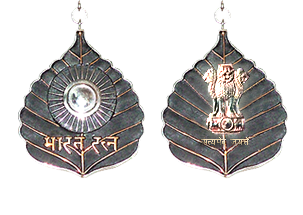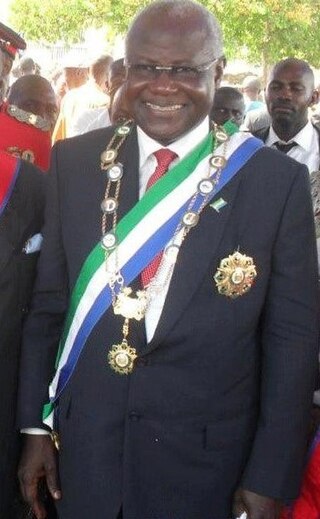Related Research Articles
In the United Kingdom and the British Overseas Territories, personal bravery, achievement, or service are rewarded with honours. The honours system consists of three types of award:

The Distinguished Service Order (DSO) is a military decoration of the United Kingdom, as well as formerly of other parts of the Commonwealth, awarded for operational gallantry for highly successful command and leadership during active operations, typically in actual combat. Since 1993 it has been awarded specifically for "highly successful command and leadership during active operations", with all ranks being eligible. It is a level 2A decoration (order) in the British system of military decorations.
An order is a visible honour awarded by a sovereign state, monarch, dynastic house or organisation to a person, typically in recognition of individual merit, that often comes with distinctive insignia such as collars, medals, badges, and sashes worn by recipients.
The orders, decorations, and medals of Canada comprise a complex system by which Canadians are honoured by the country's sovereign for actions or deeds that benefit their community or the country at large. Modelled on its British predecessor, the structure originated in the 1930s, but began to come to full fruition at the time of Canada's centennial in 1967, with the establishment of the Order of Canada, and has since grown in both size and scope to include dynastic and national orders, state, civil, and military decorations; and various campaign medals. The monarch in right of each Canadian province also issues distinct orders and medals to honour residents for work performed in just their province. The provincial honours, as with some of their national counterparts, grant the use of post-nominal letters and or supporters and other devices to be used on personal coats of arms.
South African orders, decorations and medals are those military and civilian orders, decorations and medals issued by the Government of South Africa. The following is a (non-exhaustive) list of these:
This is a list of orders, decorations and medals of the Republic of China, usually known as Taiwan after 1949. This list is sorted in order of precedence of the highest grade of each award on a full military dress. The Honour Sabre is a special case and is listed separately under Military orders, as per its official classification by the Ministry of National Defense.

The Indian honours system is the system of awards given to individuals for a variety of services to the Republic of India. The categories of awards are as follows:
The South African honours system consists of orders, decorations, and medals which are conferred on citizens, and others, to recognise a range of services and achievements. The system has developed since 1894.
Nigerian National Honours are a set of orders and decorations conferred upon Nigerians and friends of Nigeria every year. They were instituted by the National Honors Act No. 5 of 1964, during the First Nigerian Republic, to honour Nigerians who have rendered service to the benefit of the nation.
Orders, decorations and medals of Bulgaria are regulated by the law on the Orders and Medals of the Republic of Bulgaria of 29 May 2003.

The orders, decorations and medals of Finland form a system through which the Finnish government shows its respect to persons who have distinguished themselves on some walk of life. The legal basis of the system is the Act on the displays of public recognition (1215/1999) which grants the president the authority to issue decrees on orders, medals and titles.
The honours system in the Republic of Austria is a means of rewarding individuals' personal achievement, or service to Austria by state decorations and medals.

The Japanese honours system is a system implemented for rewarding awards to Japanese and non-Japanese persons for their achievements and service to Japan. The Emperor is the head of the honors system in Japan.
This is a list of some of the modern orders, decorations and medals of France. Some, like the Legion of Honour, are awarded to both the armed forces and civilians. Others are decorations of a pure civilian or military character. Only four of the 19 Ministerial orders have survived the reform of the French system of decorations in 1963. The others were replaced by the Ordre national du Mérite.
Orders, decorations, and medals of Bosnia and Herzegovina are social and public recognitions, which are awarded for special contributions to the realization of human rights and freedom, for construction of democratic relations, peace and stabilization, development of International cooperation of Bosnia and Herzegovina with other countries and with International organizations and for cultural, economic and every other progress of people and citizens of Bosnia and Herzegovina. The system of honours of Bosnia and Herzegovina was established after the Croat–Bosniak War ended in 1994, and changed in May 2003.
The system of orders and medals of the Republic of North Macedonia is regulated by the Law on Awarding Decorations and Recognitions of North Macedonia. The President of North Macedonia awards all orders and medals on behalf of the nation. Awards recommendations are received and reviewed by the Commission on Awarding Decorations and Recognitions, a 14-member body appointed by the president to assist him in carrying out the laws related to orders and decorations. Individuals and organizations, both Macedonian and foreign, are eligible for recognition by the state. Awards are made to recognize achievements in the fields of social, political, economic, or scientific-research works. Recognition may also be made for especially meritorious social and humanitarian aid. Other activities which may be recognized are contributions to the peaceful and stable development of North Macedonia, for contributions to democratic development, for outstanding achievements in work, or for great personal courage in defense of North Macedonia. Awards may be made posthumously.

The Order of the Republic is the premier order of the state of Sierra Leone. It was established by President Siaka Stevens in 1972, to honour Sierra Leoneans and foreign nationals for distinguished and dedicated service to Sierra Leone.
The Presidential Award is a decoration established by President Siaka Stevens to honour Sierra Leoneans in recognition of "diligent and dedicated services" to Sierra Leone.

A number of new Sierra Leonean medals were instituted in the decade from 1961, when the country gained independence, until 1971, when Sierra Leone was declared a republic.
References
- ↑ Raw-Rees, Owain (January–February 2009). "Sierra-Leone - Issued and Destroyed" (PDF). Journal of the Orders and Medals Society of America. 60 (1): 13–19. ISSN 0025-6633.p. 18.
- ↑ Daramy, Soulay (11 May 2021). "National Award: What it is and how it is done". Awoko Newspaper. Retrieved 3 May 2023.